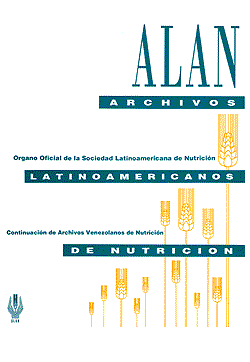Biochemical and microbiological changes during fermentation and storage of a fermented milk product prepared with tibetan Kefir starter
Palabras clave:
Tibetan Kefir Starter, Fermented Milk Drink, Lactic Acid Microorganisms, Iniciador de Kéfir Tibetano, Bebida de Leche Ferrmentada, Microorganismos de Acido LácticoResumen
The aim of this study was to determine the optimal temperature ranges of milk fermentation by the microbial association Tibetan Kefir Grains and to set changes during the storage of the fermented milk product. The optimum technological parameters of milk fermentation by Tibetan Kefir Grains compliance are set. Compliance of these parameters ensures the desired metabolic processes and obtaining a dairy product with good organoleptic properties: fermentation temperature is 28±1 °С for 24 hours, acidity of the product is from 80 to 120 % lactic acid, the amount of lactic acid bacteria – (2.9±0.22) × 108 CFU/cm3, fungi – (3.7±0.27) × 104 CFU/cm3. It was found that during the storage of the fermented milk drink produced on the leaven Tibetan Kefir Grains at the temperature of 4 ± 1 °С for 10 days titratable acidity of the product increased by 1.2 times to 108.4 ± 8.3 °Т, the population of lactic acid bacteria (Lactobacillus fermentum and some other) and yeast (Saccharomyces spp and some other) remained at the initial level. This indicates that the finished fermented milk product can be stored without losing functional probiotic properties for at least 10 days and meets the requirements of the standard (ISO 4471). At the same time, at a temperature of +8 ± 1°С the expiration date of the fermented milk drink is decreases to 7 days.
Descargas
Citas
Descargas
Cómo citar
Número
Sección
Licencia
Usted es libre de:
Compartir — copiar y redistribuir el material en cualquier medio o formato
Adaptar — remezclar, transformar y construir a partir del material
La licenciante no puede revocar estas libertades en tanto usted siga los términos de la licencia
Bajo los siguientes términos:
Atribución — Usted debe dar crédito de manera adecuada, brindar un enlace a la licencia, e indicar si se han realizado cambios. Puede hacerlo en cualquier forma razonable, pero no de forma tal que sugiera que usted o su uso tienen el apoyo de la licenciante.
NoComercial — Usted no puede hacer uso del material con propósitos comerciales.
No hay restricciones adicionales — No puede aplicar términos legales ni medidas tecnológicas que restrinjan legalmente a otras a hacer cualquier uso permitido por la licencia.




